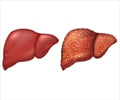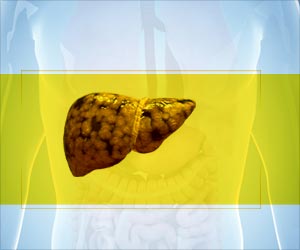In case of liver diseases namely cirrhosis, extended inflammation in liver macrophage cell cultures was found to result in a reduction of RNF41 protein levels.

RNF41 orchestrates macrophage-driven fibrosis resolution and hepatic regeneration
Go to source). This study could lead to the design of drugs that enhance the production of RNF41 protein in macrophages, defensive cells of the immune system that play an essential role in the response to liver damage and in the progression of chronic liver disease.
RNF41 as a Promising Therapeutic Target for Chronic Liver Diseases
"This potential therapeutic target represents a new master regulator of the role of macrophages in the control of chronic liver diseases and other diseases characterized by inflammation and fibrosis", says Pedro Melgar-Lesmes, member of the August Pi i Sunyer Biomedical Research Institute (IDIBAPS), the Biomedical Research Networking Center in Hepatic and Digestive Diseases (CIBEREHD) and the Massachusetts Institute of Technology (MIT, United States).What is the Role of the RNF41 Protein in Liver Fibrosis?
The study reveals that the expression of RNF41 — a protein related to inflammatory processes — is lower in macrophages isolated from liver samples of patients with liver cirrhosis, regardless of the origin of the disease. In mice with liver fibrosis, the expression of the protein in liver macrophages is also reduced.‘Controlling innate immunity, particularly macrophage activity, is crucial in the fight against liver fibrosis and promoting liver regeneration. #liverdiseases’





"Therefore, chronic inflammation could be responsible for the reduction of RNF41 in macrophages", says Melgar-Lesmes. In mice in which RNF41 protein function could be restored, results have shown enhanced elimination of fibrosis, reduced liver inflammation and increased liver regeneration.
To obtain these results, an innovative methodology based on the use of dendrimer-graphite nanoparticles (DGNP) — molecules with functional characteristics of interest in biomedicine — designed by the team has been used. In addition, the technique of specific isolation of macrophages, using magnetic spheres bound to antibodies (MACS), has also been applied. This has demonstrated that these nanoparticles are effective in selective gene therapy in inflamed macrophages in fibrotic liver.
In parallel, in vitro studies confirm that if RNF41 protein disappears in macrophages of fibrotic mouse livers, it triggers a storm of inflammatory cytokines that leads to increased fibrosis, liver damage and some mortality. "This tells us that RNF41 protein is necessary to overcome fibrosis and chronic inflammation in liver disease", says Melgar-Lesmes.
The team's future lines of research will focus on identifying which proteins control the RNF41 protein in macrophages. "This will allow us to design new drugs to increase the expression of this key protein in the regulation of the role of macrophages in inflammation and liver fibrosis", concludes the researcher.
Advertisement
- RNF41 orchestrates macrophage-driven fibrosis resolution and hepatic regeneration - (https://www.science.org/doi/10.1126/scitranslmed.abq6225)















